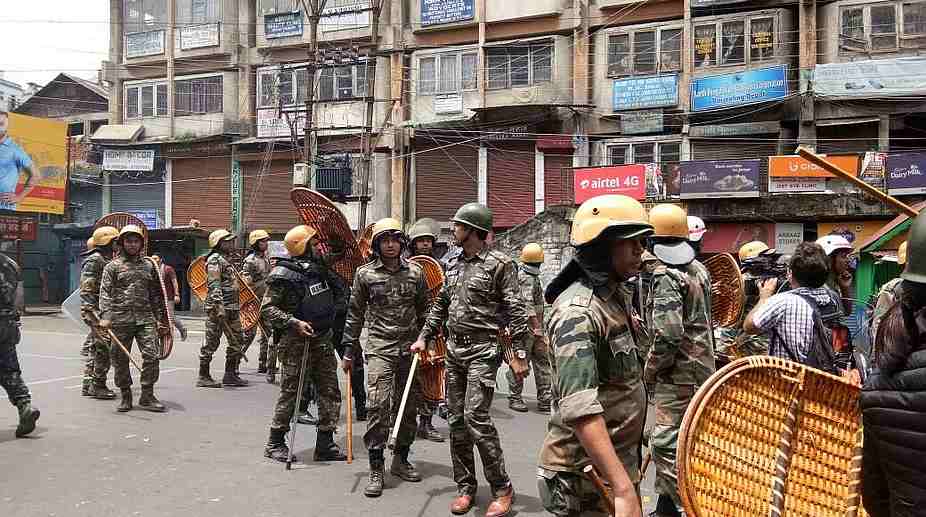The confusion and violence in Darjeeling have exacerbated with the twin explosions in the weekend in the hill town and at a Kalimpong police station. Bimal Gurung’s offer to hold talks with the state government ~ and not the Centre alone ~ might seem reassuring on the face of it, but has done little to clear the air, let alone convince the state government. He still sticks to his single-point agenda ~ the talks must be centred on the demand for Gorkhaland. He has denied the involvement of the GJMM in the two incidents, but has stopped short of identifying those responsible. Is it possible that what the people in the Hills call a “hardline fringe group” is intent on scuttling the talks? Having been booked under terror laws in the aftermath of the blasts, he is acutely aware that he is scarcely in a position to set the terms of engagement. He must be no less aware that a “fringe group” in so volatile a place as Darjeeling is not in a position to ignite an explosion without a nod from on high. In the net, Gurung has emerged as a bundle of contradictions. His assurance that the movement, which has gone beyond two months, will “remain democratic” seems intended for the birds not least because the Gorkha upheaval has roiled the Hills with varying degrees of intensity for the past 30 years. Of late, the GJMM leader’s explosive bluster runs counter to his purportedly “democratic” intent ~ “The land is seeking blood. The eleven deaths till now are only a trailer and the picture is yet to be completed.” Given the increasingly aggressive attitude, the superficial willingness to hold talks with the state cannot readily inspire optimism, though he may have heeded the suggestion of Rajnath Singh who at a meeting in Delhi on 13 August had lobbed the ball to the state’s court. The Chief Minister has now invited all stakeholders for talks on 29 August and this is a welcome development. While the state government was earlier of the view that talks could not be convened in parallel to the indefinite fast and the attendant violence and arson ~ a reasonable position in itself ~ the latest invitation suggests the desire for peace is strong.
The withdrawal of the hunger-strike by the youth wing of the morcha was at best a partial thaw, at worst a direly deceptive gesture. For one thing, the two explosions occurred soon after the fast ended; for another, it steeled the resolve of the morcha leaders to articulate their demand louder still. Both the fast and the agitprop will have to end if the negotiating table is to provide outcomes. The rest of Bengal looks forward to a measure of forward movement before the Pujas, when the tourist season normally peaks. The major sources of revenue ~ tea and tourism ~ have been threatened for close to three months.
Advertisement











